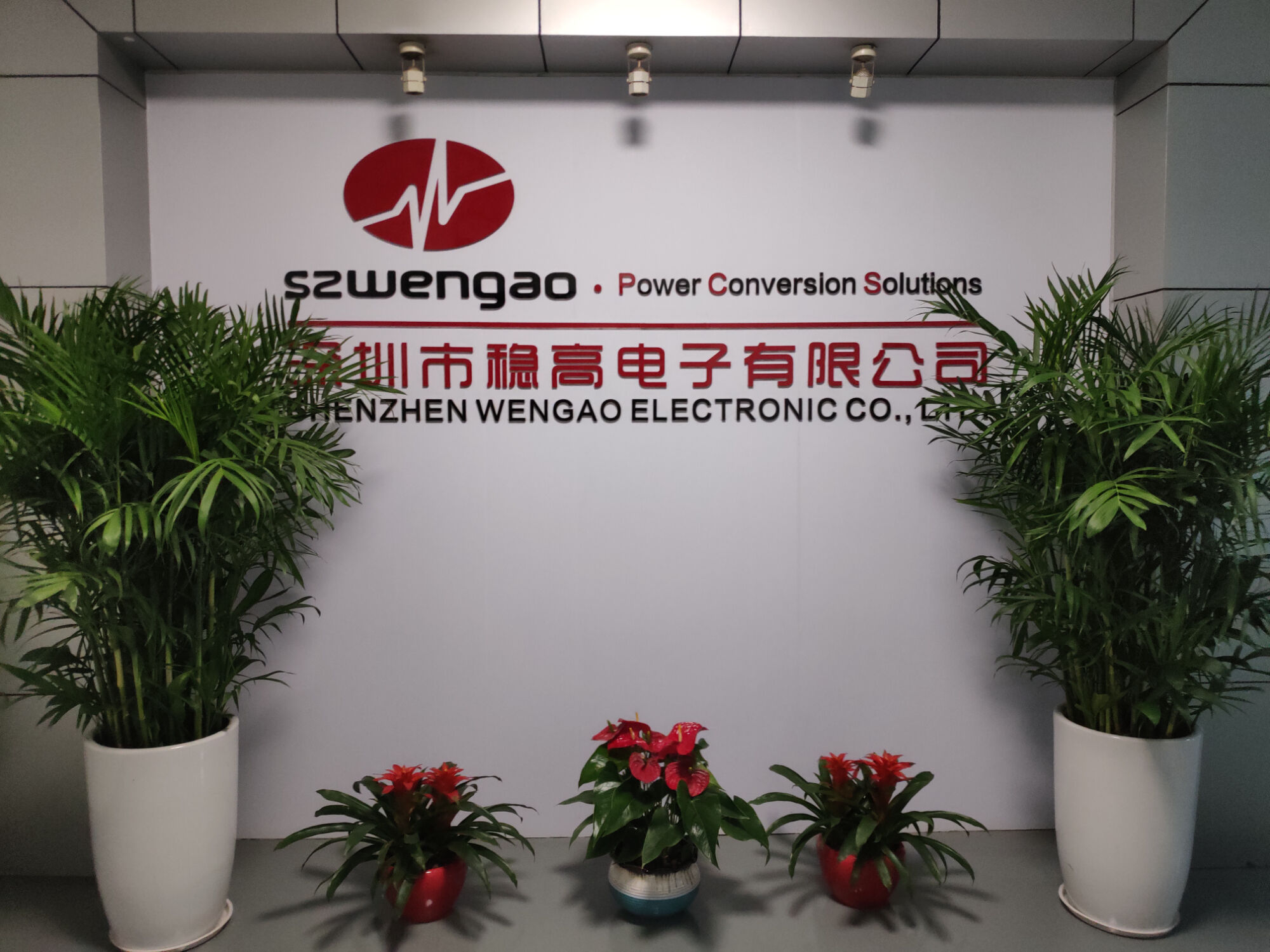Understanding Isolated DC-DC Converters
What Are Isolated DC-DC Converters?
Definition and Basic Working Principle
Isolated DC-DC converters are crucial electrical devices designed to convert DC voltage from one level to another while ensuring electrical isolation between the input and output. This isolation is achieved typically through the use of transformers or opto-isolators, which provide galvanic separation. This prevents ground loops and enhances electrical safety, making isolated converters indispensable in applications that require improved efficiency and reliability. Unlike non-isolated converters, which may establish a direct connection between input and output, isolated converters operate uniquely to safeguard sensitive components from electrical malfunctions. Their distinct architecture supports various high-voltage applications that demand meticulous power management solutions.
Isolation Mechanisms: Galvanic Separation Explained
Galvanic separation is a critical isolation mechanism used in DC-DC converters to protect electronic components by ensuring there is no direct electrical connection between the input and output. This method significantly reduces noise issues and shields sensitive parts from electrical disturbances. Current isolation techniques, including transformers, optical isolators, and capacitive coupling, serve to maintain signal integrity and enhance electrical safety. These techniques are essential for industries dealing with high-voltage applications, as they minimize the risk of electric shock and protect equipment from damage. By understanding these mechanisms, businesses can implement safer and more efficient power management systems, crucial for applications such as medical and aerospace industries where operational integrity is paramount.
Key Features of Industrial-Grade Isolated Converters
Wide Input Voltage Range (20V-90V Systems)
Industrial-grade isolated DC-DC converters are renowned for their ability to handle a wide input voltage range from 20V to 90V, providing exceptional versatility across various applications. This broad adaptability offers benefits in sectors like automotive and telecommunications, where fluctuating voltage levels are prevalent. This feature ensures seamless integration into systems operating under different voltage standards without compromising their functionality. By accommodating diverse voltage inputs, these converters help improve system efficiency and minimize potential complications.
High Efficiency (93%+ Performance)
Achieving high efficiency, particularly rates of 93% or greater, is crucial in industrial-grade isolated converters as it results in less energy wasted as heat. This enhances operational cost-effectiveness and extends the lifespan of devices. High efficiency is vital in applications where effective thermal management is necessary to prevent component failures. Additionally, selecting converters with higher efficiency supports sustainability efforts, maximizing productivity while reducing energy consumption.
Protection Systems: Overload, Short-Circuit & Thermal
Industrial-grade isolated converters come equipped with robust protection systems, essential for ensuring safe operation. These include features to protect against overloads, short circuits, and thermal issues, often automatically disconnecting output to prevent damage under fault conditions. As electronic systems become increasingly complex, integrated safety features offer peace of mind for operators. Safety mechanisms are crucial in minimizing potential downtime and ensuring the reliable performance of electronic systems across various industries.
Applications for 12V/24V Power Conversion Systems
Electric Vehicle Power Distribution
Isolated DC-DC converters are increasingly vital in electric vehicle systems, especially for efficient power distribution while maintaining effective battery management. These converters help balance the energy demands of various vehicle components, enhancing overall efficiency and performance. This is particularly crucial in both hybrid and fully electric vehicles, where different subsystems require stable power supply to function optimally. Current trends signal a growing reliance on these converters in support of the burgeoning EV market, which is expected to witness growth rates of up to 25% annually.
Telecommunications Infrastructure
In telecommunications infrastructure, isolated DC-DC converters provide stable power supplies crucial for managing varying voltage inputs and loads. High reliability and power stability are non-negotiable in these systems, as uninterrupted power is essential to maintain operations and ensure effective communication services. The integration of converters allows telecom companies to optimize their power consumption structures, resulting in significant cost savings without sacrificing performance and reliability. This approach helps telecom providers enhance their service delivery while maintaining operational efficiency.
Solar Energy Storage Solutions
Isolated DC-DC converters play a pivotal role in solar energy storage systems by controlling the voltage levels between solar panels and batteries. These converters ensure that excess energy generated during peak sunlight hours can be stored efficiently, preventing safety hazards that might arise from non-isolation. With the solar industry's continuous expansion, these converters address various integration challenges, ultimately improving the overall energy efficiency of solar systems. By managing voltage and enhancing system compatibility, they contribute significantly to maximizing solar energy utilization.
Isolated vs. Non-Isolated DC-DC Converters
Safety and Noise Suppression Advantages
Isolated DC-DC converters provide enhanced safety by eliminating risks associated with shared grounds, offering crucial protection for sensitive equipment and personnel. These converters effectively mitigate electromagnetic interference (EMI) and noise, making them vital in noise-sensitive applications such as medical devices and audio equipment. According to quantitative studies, isolated converters can reduce noise levels by up to 40%, which significantly enhances performance in environments sensitive to noise interference. This makes them an ideal solution for scenarios requiring precise and reliable power conversion.
When Isolation Matters: Medical & Marine Use Cases
In medical applications, isolated converters are integral to preventing electrical shocks to patients while maintaining the operation integrity of delicate medical devices. Similarly, in marine environments, the necessity of isolation cannot be overstated, given the involvement of high voltages. It plays a critical role in safeguarding equipment and operators from potential electrical hazards. These sectors' strict adherence to regulatory compliance underscores the essential nature of isolated DC-DC converters, which remain a pivotal regulatory requirement. The deployment of these converters reflects adherence to stringent safety standards, ensuring dependable and safe operation across a wide array of environments.
Top-Rated Isolated DC-DC Converter Solutions
120W 36-90V to 12V Buck Converter with Full Protection Suite
This converter stands out for its wide input range and efficient voltage regulation, making it ideal for numerous applications requiring a steady 12V output. It is equipped with advanced protection systems, ensuring operational safety by preventing system malfunctions. With efficiency ratings exceeding 92%, as indicated by performance metrics, this 120W buck converter becomes a preferred choice for industrial applications, offering both reliability and effectiveness.
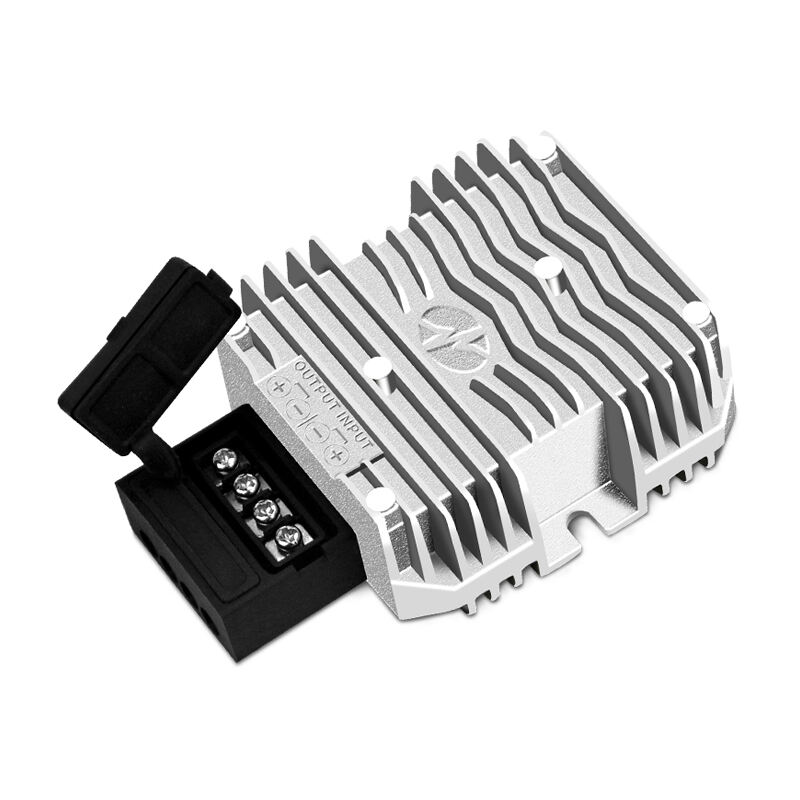
48V 4A Buck-Boost Regulator for Solar/Telecom Systems
The 48V buck-boost regulator is crafted for applications facing variable input conditions, offering versatility in both step-up and step-down voltage conversions. Its robust construction ensures it aligns well with renewable technologies and telecommunications systems, delivering efficient energy management. User feedback also underscores the regulator's reliability, maintaining consistent performance even under fluctuating loads, thus ensuring optimal operation for both solar and telecom systems.
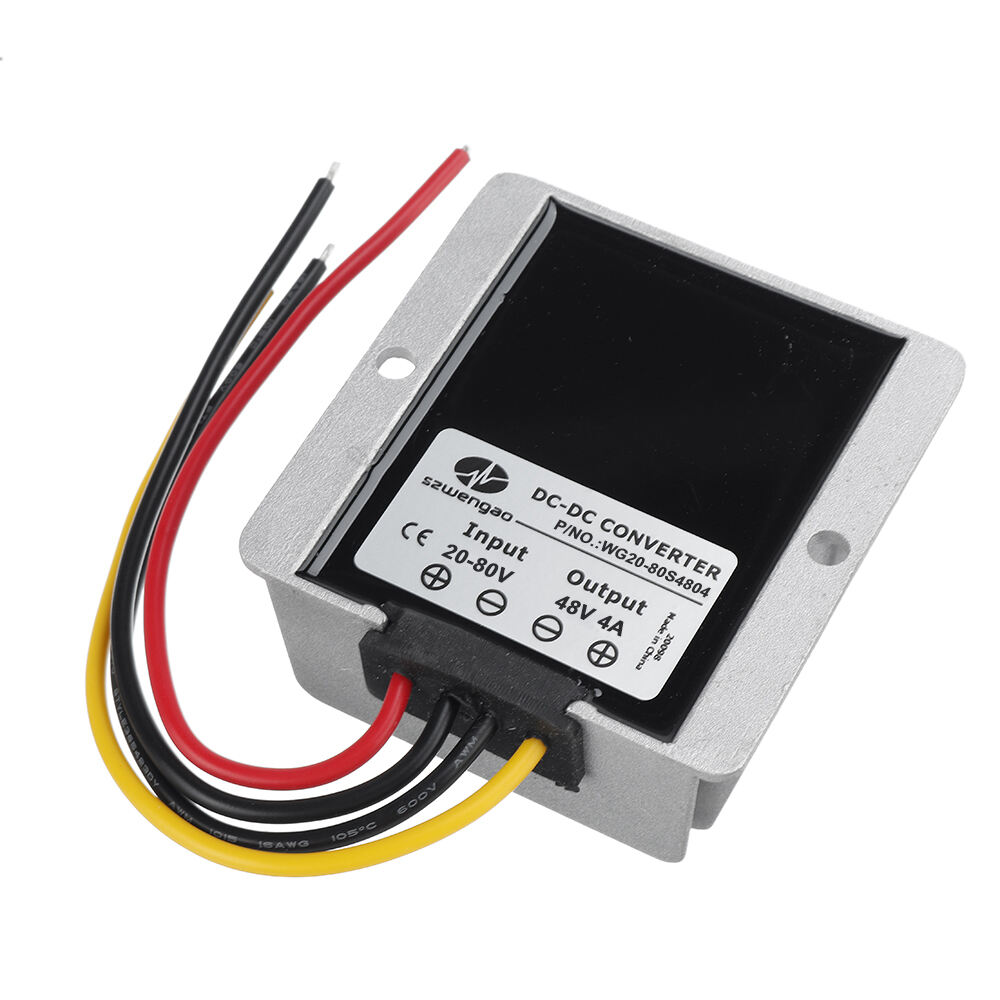
840W 10-44V Automotive Converter with Thermal Management
The 840W automotive converter is renowned for its superior thermal management capabilities, enabling optimal performance even in demanding conditions typical of automotive settings. Its significant power capacity supports heavy-load automotive components without the risk of overheating. Performance assessments reveal minimal heat generation, prolonging the device's lifespan and reducing failure rates, making this converter indispensable for automotive applications requiring high load capacity and thermal regulation.
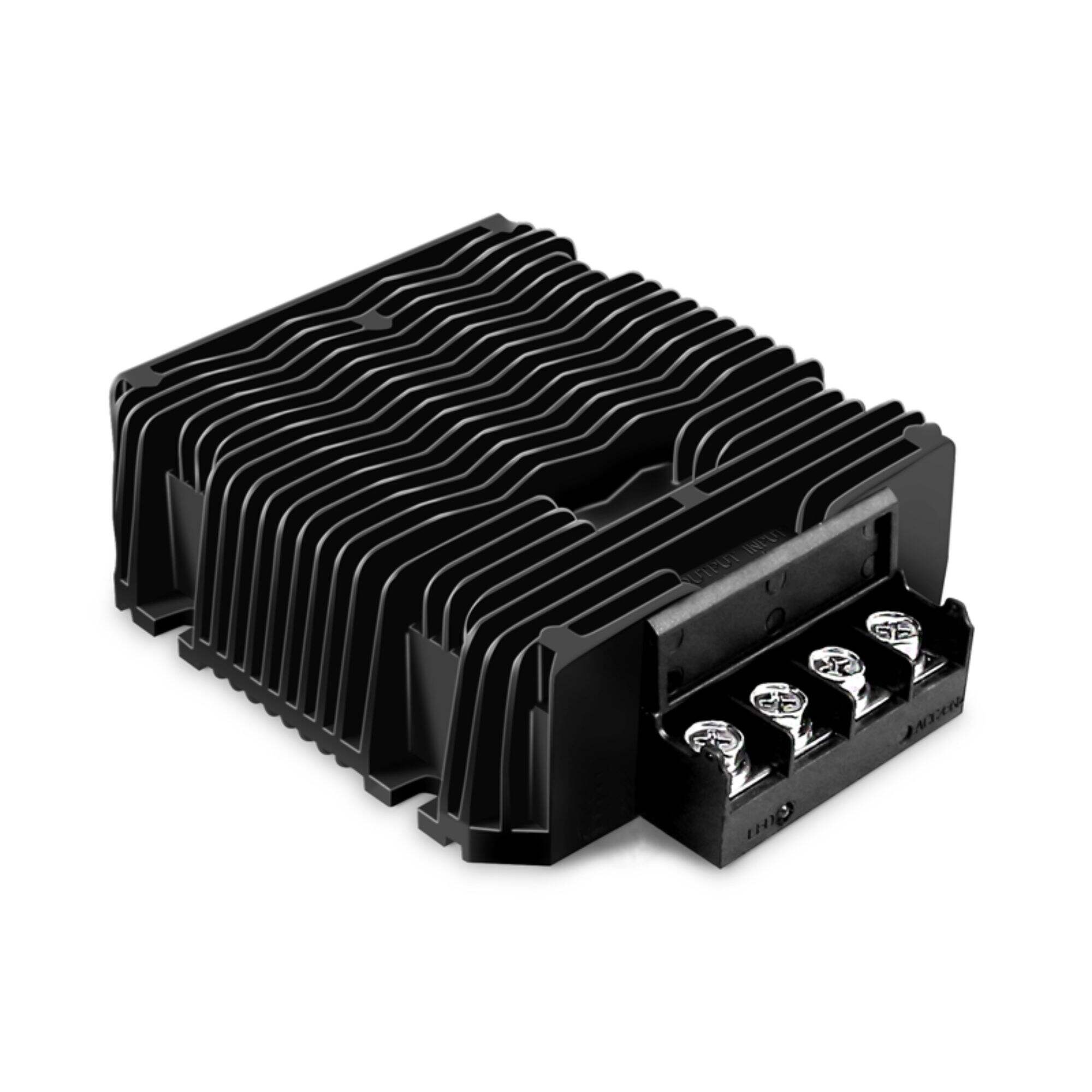
Selecting Your DC-DC Converter: Critical Factors
Input/Output Voltage Compatibility Checks
Ensuring voltage compatibility is paramount for the seamless operation of DC-DC converters. Mismatched voltages can significantly impair performance or even cause damage to electrical systems. Therefore, conducting thorough compatibility checks can prevent costly repairs and enhance the longevity of the overall system. For optimal system efficacy, industry standards often emphasize matching input and output specifications. Regular voltage compatibility tests are crucial in maintaining performance efficiency and system longevity, ensuring the reliable functioning of complex electronic architectures.
Environmental Ratings (-40°C Operation)
For applications in extreme conditions, converters with suitable environmental ratings are essential. Products rated for operations as low as -40°C are critical in harsh climates or environments, where reliability under stress is a must. Understanding these ratings ensures that the chosen converter will function effectively without performance degradation over time. Often, regulatory bodies require adhering to specific environmental standards, making these ratings vital in product selection. Therefore, considering environmental ratings can be as crucial as the technical specifications alone.
Certifications: RoHS/CE Compliance Requirements
Certifications like RoHS and CE are crucial for the global market acceptance of DC-DC converters. Compliance with RoHS (Restriction of Hazardous Substances) and CE (Conformité Européenne) signifies adherence to specific environmental and safety standards, meeting both legal requirements and reflecting a commitment to sustainability. Manufacturers often leverage these certifications to signify product quality and reliability in competitive markets. Awareness and adherence to such certifications can therefore signify both compliance and an emphasis on safeguarding the environment, which can be a pivotal factor in decision-making.
Recommended Products
Hot News
-
Application Advantages of Non-Isolated BUCK Converters Compared to Isolated Step-Down Converters
2024-01-23
-
DC-DC Converters Showcase Remarkable Advantages in Outdoor Off-Grid Applications
2024-01-23
-
DC to DC Battery Charger - Wide input and Noise immunity for dual battery system applications
2024-01-19
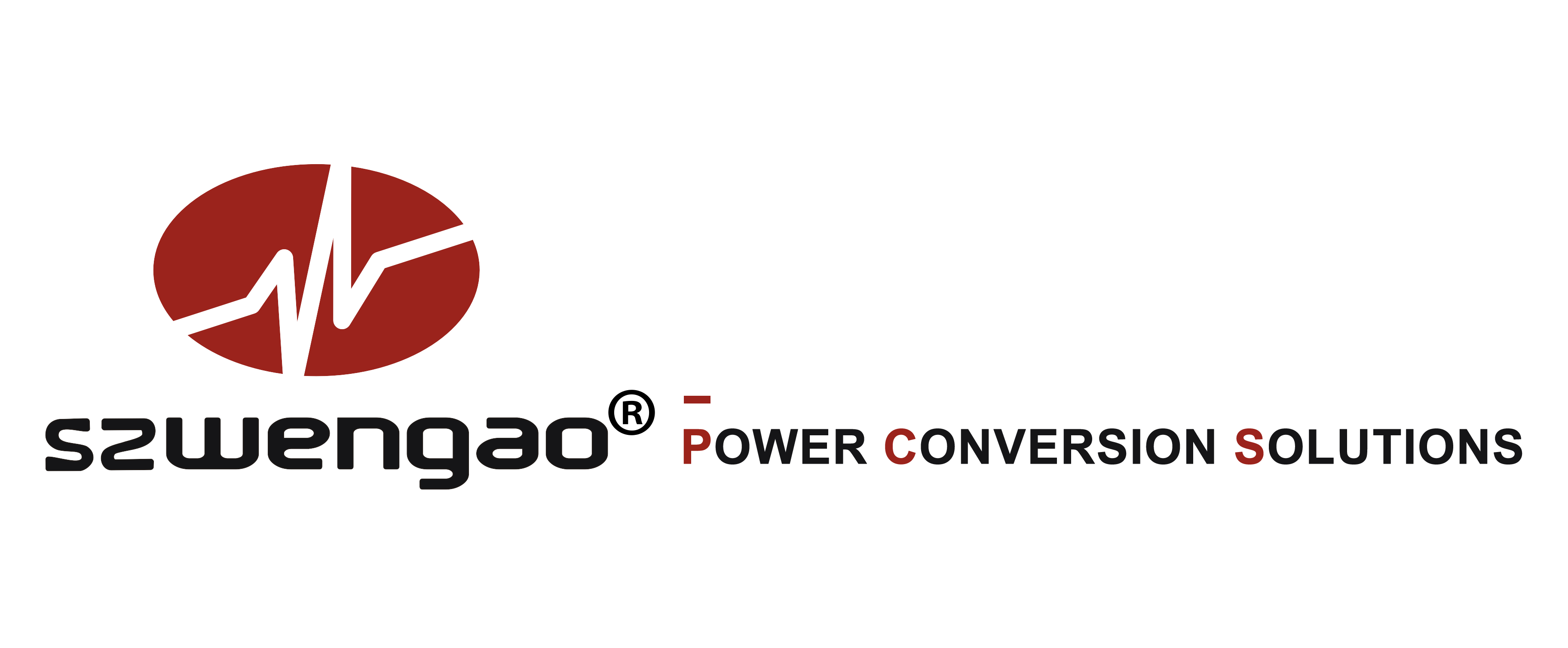
 EN
EN
 AR
AR
 BG
BG
 HR
HR
 CS
CS
 DA
DA
 NL
NL
 FI
FI
 FR
FR
 DE
DE
 EL
EL
 HI
HI
 IT
IT
 JA
JA
 KO
KO
 NO
NO
 PL
PL
 PT
PT
 RO
RO
 RU
RU
 ES
ES
 SV
SV
 CA
CA
 TL
TL
 IW
IW
 ID
ID
 SR
SR
 SK
SK
 UK
UK
 VI
VI
 HU
HU
 TH
TH
 TR
TR
 FA
FA
 AF
AF
 MS
MS
 GA
GA
 HY
HY
 BN
BN
 MN
MN

